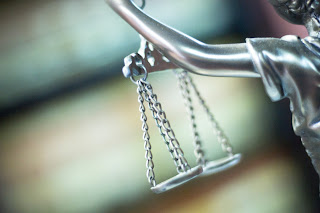A Bankruptcy Lawyer Can Help You Choose Which Chapter To File Under
A Bankruptcy Lawyer Can Help You Choose Which Chapter To File Under

There are several different chapters of bankruptcy, and bankruptcy lawyers can help you decide which chapter is the right one for your situation. There are also federal and state exemptions that apply to bankruptcy. Regardless of which chapter you file under, you need to fill out all the forms correctly, or the bankruptcy may be ruled fraudulent.
Exemptions from creditors in Chapter 7 bankruptcy
Chapter 7 bankruptcy is a financial relief option that allows debtors to keep some of their property. The amount of exempt property you keep depends on your assets and the exemptions you claim. You may be able to keep all of your property if you qualify. In addition, the trustee is not allowed to sell anything that is exempt.
To qualify, your income must be below a certain threshold set by your state. This threshold can change frequently, so it is important to check with a debt relief counselor or bankruptcy attorney if you are unsure about whether you qualify for Chapter 7.
Discharge of certain debts in Chapter 13 bankruptcy
In Chapter 13 bankruptcy, certain debts can be discharged. A discharge allows the debtor to be relieved of most unsecured debts, but certain debts are excluded. These include debts relating to alimony or child support, certain long-term obligations, and most government-funded educational loans. Other debts not discharged include restitution and criminal fines.
While bankruptcy may eliminate your obligation to pay certain debts, it does not get rid of your obligation to pay liens. For example, if you have a mortgage on your house, it is not discharged. Because lenders still have a security interest in the property, they can still foreclose on it.
Requirements of Chapter 7 bankruptcy
If you want to file for Chapter 7 bankruptcy, there are certain requirements you must meet. The first requirement is to have a lower income than the median income for people in your state. This is called the “means test” and is used to determine whether you have enough disposable income to pay your unsecured creditors. If you fail the means test, you may still be able to file for Chapter 7 bankruptcy, but you will have to wait up to 181 days after you file.
The second requirement for filing for Chapter 7 bankruptcy involves determining your monthly income. This amount is determined through a “means test,” which compares the debtor’s current income to the median income for the state. This amount excludes income tax refunds or payments from Social Security retirement benefits.
If you need an Bankruptcy Lawyer, please call this law firm for a free consultation.
Ascent Law LLC
8833 S Redwood Road Suite C
West Jordan UT 84088
(801) 676–5506
https://www.ascentlawfirm.com


Comments
Post a Comment